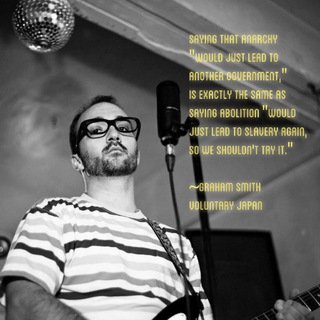My son Isaiah in his mech warrior, ready to learn 24/7.
(日本語のアンスクーリングアンスクーリング説明と動画は下の方にあります。)
My son will turn 6 next year.
That is the age of compulsory school attendance here in Japan. We're not going to go that route. As my in-depth and years-long study of elementary education and child psychology have taught me--both in practice and in theory--school is a place that systematically retards learning, and not one that encourages it, generally speaking.
To be fair, my wife and I haven't had to "fight" yet.
Here in Japan, it is more like "working around." That said, we just put out a call on a local Facebook community page, in English and Japanese, asking if there were any other homeschooling, unschooling, or even futouko ("school refuser") children around that we could network with.
My wife got a prompt response from a Japanese acquaintance, saying that this is "impossible," and will make life much harder for my son. She also mentioned the law.
What does Japanese law say about homeschooling/unschooling?
Basically, like all other areas of law everywhere, the law is somewhat vague. On the surface, however, homeschooling, as such, is basically illegal by most interpretations.
What the School Law on Education 学校教育法 says:
— point 1 under Chapter 22 says that parents, legal guardians or person to which the custody of all children is entrusted are obligated to send all children 6 years of age to school from the beginning of the school term of first grade until the completion of the completion of the grade they are in when they become 12 years old. This section deals with grades of ages between 6 and 12 years old. All children must attend elementary school whether they be blind, deaf or disabled in anyway, or the ones that are in the protective institutes in Japan. So it seems that children must complete elementary school. And if parents or guardians continue to refuse, there is a provision for penalties see article 21,22,39.
In spite of this, there are thousands of children in Japan that do not attend school. Some are homeschooled, some are unschooled, and some are labeled "school refusers" ("problem children," in a sense) or futouko.
Though the law here seems pretty clear, there are special provisions made for children pursuing alternative routes to education such as attending an international school, a "free school" (for "school refusers"), and etc. On top of this, Japan has also ratified the UN's Convention on the Rights of the Child, which states:
Art 5 (1) The States Parties to this Convention agree that: 1(b) It is essential to respect the liberty of parents and, where applicable, of legal guardians, firstly to choose for their children institutions other than those maintained by the public authorities but conforming to such minimum educational standards as may be laid down or approved by the competent authorities
So you see, things are never as clear and dead-end as some folks try to make them. Most homeschooling parents are not penalized, and if I am not mistaken, the penalty for non-compliance is a mere ¥10,000 fine (about 100 USD). Individual school boards and local authorities deal with the situation in myriad ways. My main concern is to find out how I can not have these people bother me, or attempt to interfere in my family, and keep them at bay.
So my challenge now is not only to build a community, but to learn the law, and be flexible enough to work with the local "authorities" so that I get my way.
I am currently reaching out to Japanese and Bi-cultural families here who have not enrolled their children in school. I need a support network. As I have mentioned, the cultural backlash is real.
Families that are Japanese or bicultural often face great opposition from grandparents and other relatives to parents who opt out of the public/private Japanese school system. The community around the family will display disbelief, suspicion about the stability of the family and some ostracism may occur. However, Japanese parents can resort to a range of institutions in educational supplemention in Japan.
Please watch my video on the topic. Forgive the bad Japanese. この動画を見てください。バラバラ日本語すみません。
http://www.eonet.ne.jp/~hsn-hime/index2.htmlからのアンスクーリング説明:
「ホームスクーリング」というのは、子どもが学校に行くのではなく、家庭や、図書館、博物館、公園などの地域のリソース(資源)を利用しながら子ども が学んでいくのを大人がサポートしていく「共育」の方法です。欧米では義務教育の方法として、法的、社会的にも認められ、選択する家庭が増え続けていま す。
日本の現状ではホームスクーリングが認知されておらず、子どもは学校に行っているのが当たり前とされる社会なので、社会的な圧迫があり、孤立しやすい 状況があるのは事実です。ですから、地域でホームスクーリングのグループをつくったり、ネットワークをつくって他地域のグループやホームスクーラーと情報 を交換したり交流をすることで、孤立することから逃れることができます。
不登校、登校拒否」がホームスクーリングを選択するきっかけになる場合が多いのですが、これは決して、学校に行かない状態がホームスクーリングと表 現されるということではありません。子どもも親も学校にこだわり、学校に戻らなければならないと思っている間は、ホームスクーリングとは呼べません。学校 へのこだわりがふっ切れ、家庭で学んでいくことに積極的な意味が見いだせるようになり、それ自体が学校に行くこととは別のもう一つの方法 一 オルタナティヴな教育の方法として親子で選び直した時に初めてホームスクーリングと呼べるのです。
Q.子どもには学校に行く義務があるのではないですか?
A.ありません。子どもには「教育を受ける権利」があるのであり、親や国は、子どもが教育を受けるのを「保障する義務」があるのです。ですから、子どもが 学校に合わなかったり、行くのが嫌な場合は、学校に行かないで学ぶ権利があるわけですが、行政レベルでの制度的な対応ができていないために、非常に多くの 親子が困っていることは事実です。
これからは「学校に行かない」事も権利であることを主張し、社会に認めさせていく必要があります。そのような市民の活動もすでに始まっていますし、各地でホームスクーリングのグループも誕生しています。
Finally, I hope it is okay to use the "family protection" tag here, as started by @markwhittam and @candaian-coconut. CPS and similar organizations give me the creeps, and I would like to have a family of Steemians who know my story for support as we continue our unschooling journey!
~KafkA
Graham Smith is a Voluntaryist activist, creator, and peaceful parent residing in Niigata City, Japan. Graham runs the "Voluntary Japan" online initiative with a presence here on Steem, as well as Facebook and Twitter. (Hit me up so I can stop talking about myself in the third person!)



